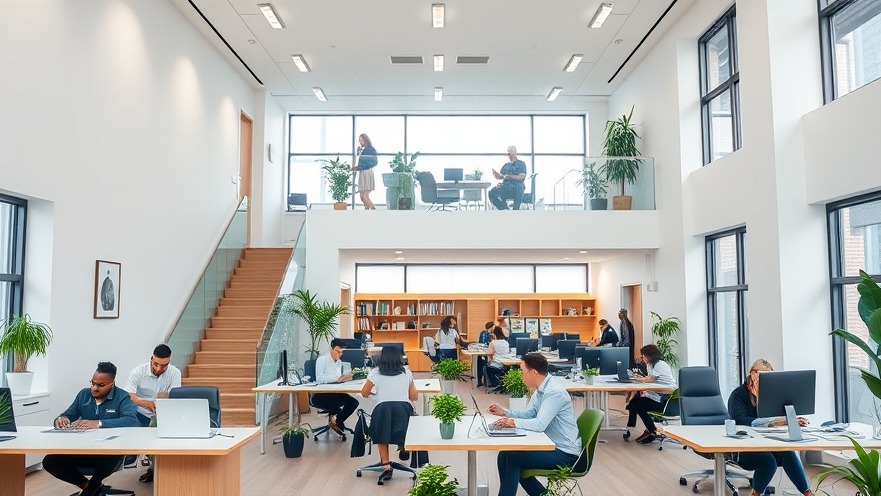
The Circular Economy: A New Paradigm in Design
In an era where sustainability has become a crucial concern for businesses, the circular economy is emerging as a guiding framework for innovation in design. Unlike the traditional linear model of 'take, make, dispose,' the circular economy aims to create a regenerative system where resources are reused, recycled, and repurposed. For boutique hospitality professionals, understanding this transition is pivotal, as it not only optimizes resource use but also caters to a growing demographic that values ecological responsibility.
Why Circular Design Matters for Hospitality
For small-scale hotel owners, Airbnb hosts, and eco-lodge operators, adopting circular design principles can significantly enhance their appeal. By integrating sustainable packaging, eco-friendly amenities, and waste elimination strategies into their business models, these entrepreneurs can attract environmentally-conscious travelers. This sector often faces the challenge of resource scarcity and waste management, and circular design offers practical solutions. For instance, biodegradable toiletries, refillable beverage containers, and reclaimed furniture not only reduce environmental impact but also appeal aesthetically to guests who prioritize sustainability.
Challenges in Implementing Circularity
Despite the clear benefits, implementing circular design poses challenges. A major barrier can be the existing supply chain structures that favor mass production over sustainability. Boutique hospitality professionals must navigate these complicated systems while forging partnerships with suppliers committed to reducing waste. This involves a significant initial investment in learning about sustainable practices and engaging suppliers who align with corporate social responsibility goals. Building a network of like-minded businesses can lead to innovation through shared resources and insights.
Opportunities for Regenerative Business Practices
The move towards circularity also opens doors for regenerative business practices that aim to give back more than they take. For instance, boutique hotels can engage in local conservation efforts or support community-driven environmental projects as a part of their business model. This not only elevates their corporate social responsibility profile but enhances their guests' experience, turning stays into opportunities for education on sustainability. Having guests participate in or contribute to local projects can create memorable experiences, boosting brand loyalty and positive word of mouth.
Practical Tips for Transitioning to Circularity
Transitioning to a circular economy might seem daunting, but there are incremental steps that can pave the way. Boutique hospitality professionals can start by auditing their current practices to identify wasteful processes or products. From there, they can explore options like:
Investing in Sustainable Packaging: Seek products that minimize waste and can be returned for reuse or recycling.
Reducing Energy Consumption: Implementing energy-efficient systems can cut costs and minimize operational footprints.
Incorporating Local Sourcing: Sourcing materials and provisions locally not only minimizes the transportation carbon footprint but supports community businesses.
By taking small steps, boutique hospitality professionals can create a significant impact, motivating their guests to partake in sustainable practices.
The Emotional Connection to Sustainability
For many boutique hospitality professionals, sustainability is not just a business strategy but a personal passion. The connection to the environment and social responsibility resonates with their values and those of their guests. It presents an opportunity to share their vision of a better world while enhancing their brand identity. As travelers increasingly seek experiences that align with their values, hoteliers who prioritize sustainability can foster a deeper emotional connection with their clientele.
Conclusion: Your Role in a Circular Future
As the shift toward circularity gains momentum, the role of boutique hospitality professionals becomes increasingly vital. By embracing the principles of a circular economy, hotels and lodges can not only drive innovation and reduce waste but also set a standard for sustainability within the industry. For those passionate about the environment and eager to establish themselves in a competitive market, this transition is both an opportunity and a responsibility.
Stand at the forefront of this movement by exploring sustainable innovations and engaging with your community. Join the conversation on circular design and make a commitment to reduce your operational impact. After all, creating a flourishing planet for future generations starts with the decisions made today.
 Add Row
Add Row  Add
Add 




Write A Comment